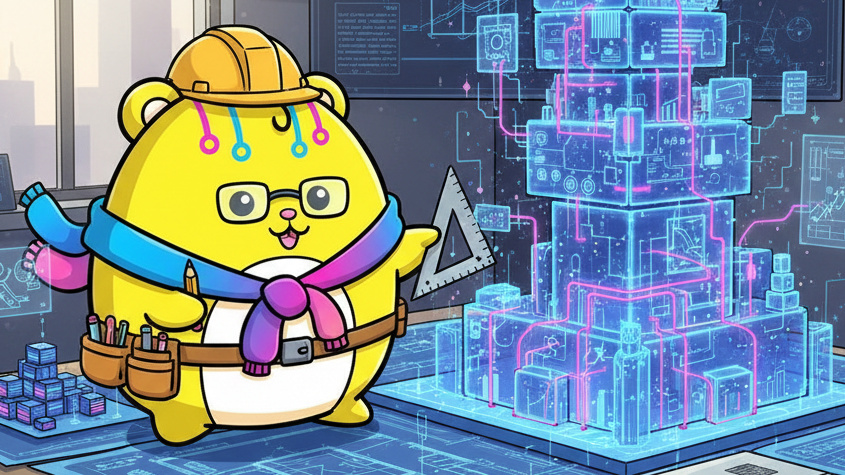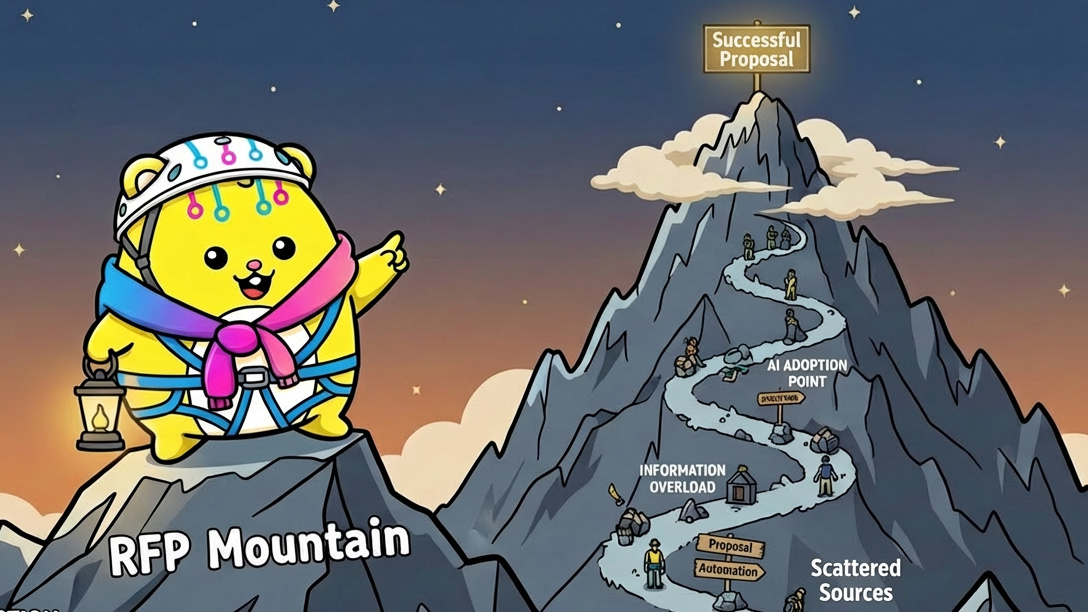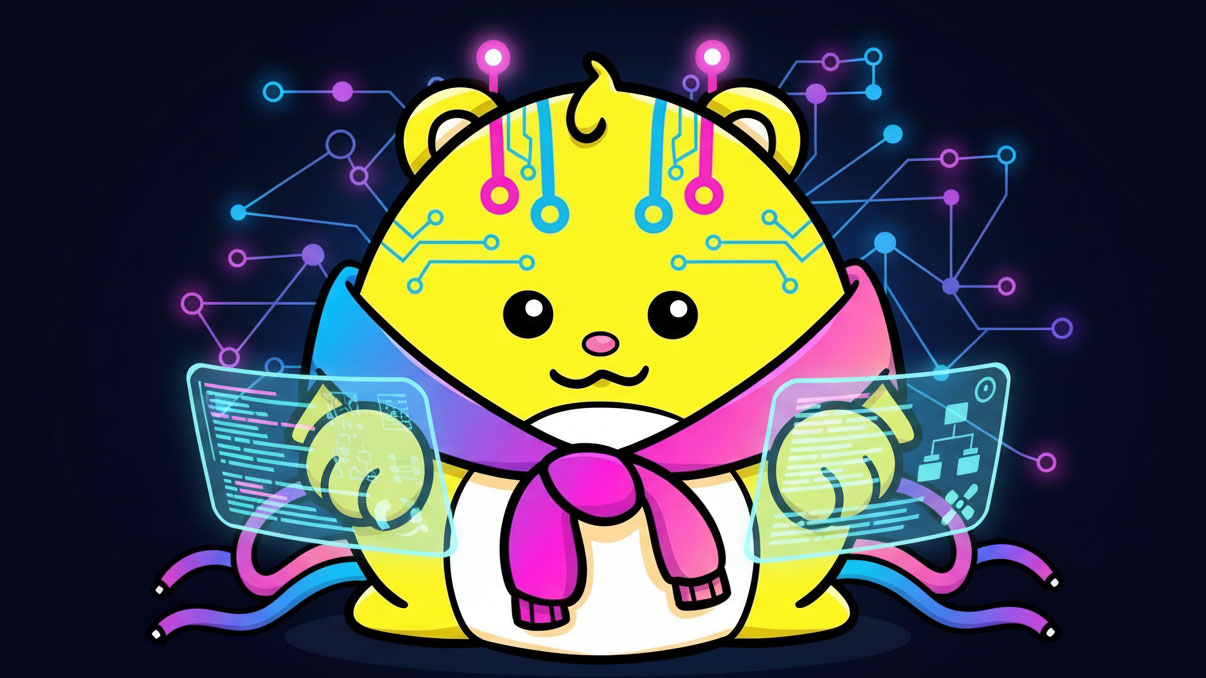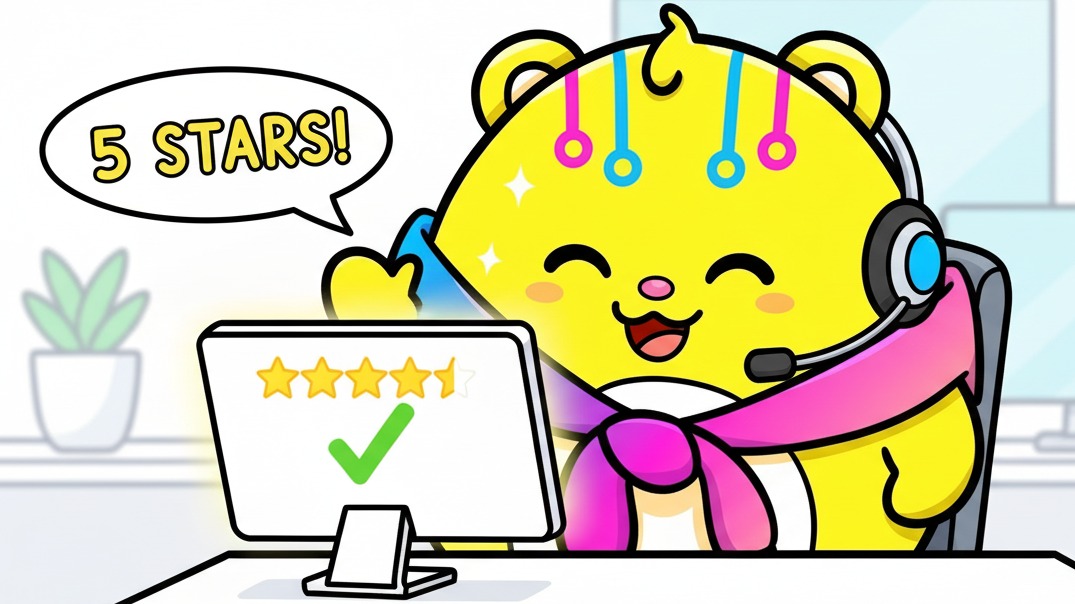Organizations have been on the same struggle bus for decades: how to capture and share what they know across the wider team.
Over the years, many solutions have been in and out of fashion. Intranets, wikis, and repositories to preserve knowledge have all had their day in the sun, but these systems often failed to deliver real value. People stopped contributing, content became outdated, and soon there’s no single source of truth for teams to work from.
Today, artificial intelligence is transforming this problem in real time. As organizations race to harness LLMs and AI in their workflows, a new kind of expert has stepped up to guide the transition: the AI Answer engineer. Whether improving internal company AI or testing new use cases, they’re shaping how companies evolve with AI.
Why Traditional Knowledge Management Struggled
Knowledge managers have existed for years, usually within large enterprises. Typically, their job includes organizing company information and making it accessible to relevant teams. This role is meant to focus on activating knowledge, not just archiving it.
Traditional knowledge management was built on the idea that if you organize information well enough, people will use it. In reality, they rarely did for the following reasons:
1. Lack of Clear Ownership
Funnily, in big companies, the knowledge manager’s job is just assumed or not clearly laid out. Oftentimes employees didn’t even know WHO the knowledge manager was.
Knowledge managers are hardly ever titled as such. They usually have a different title like QA Engineer, Security Analyst, or Presales Director, and maintaining the knowledge base is only part of their responsibilities. The role often spans departments and titles, sometimes landing with whoever happens to be closest to the information, whether they asked for it or not.
2. Lack of Participation from Employees
Most people like using shared knowledge, but almost no one wants to maintain it. The knowledge manager may already be swamped and low priority activities like updating wikis or tagging files get pushed way down on their to-do list.
Knowledge managers might spend weeks building out folders, organizing everything, and trying to make it easy to find. But after a while, they might be too overwhelmed to continue adding new information or checking what’s already there for accuracy.
Depending on one person to update the knowledge base and lack of participation from the broader team means that the system starts to get old fast, and before you know it, no one trusts it as a source of truth anymore.
3. Overemphasis on Documentation and Structure
Traditional knowledge management prioritized organization over accessibility. While these organizational systems of folders and categories appeared effective, accessing them was as difficult as keeping them updated. Employees often spent more time hunting down knowledge than applying it.
Each attempt to improve the system only made it more complicated. Restructuring didn’t bring the expected results and often added extra friction. In the end, the model looked precise but had little real impact. Culturally, once it becomes easier to ask a colleague than to navigate the system, engagement collapses and the knowledge base quickly loses relevance.

4. Organizational Silos
Knowledge managers didn’t always work on the same teams they were meant to support. They were tasked with maintaining content libraries, documentation portals, and learning systems, but rarely had insight into the daily priorities of sales, support, or product teams.
This distance created a structural disconnect. Knowledge managers were often expected to boost performance without a clear grasp of what success entailed for the specific departments they supported. Their work was judged by how much content they produced rather than by how that knowledge improved outcomes.
Over time, knowledge managers would become isolated from parts of the business whose knowledge they were responsible for maintaining.
The result was a pattern that repeated across organizations: knowledge systems appeared complete on the surface but lacked real connection to how teams worked. Without integration into everyday workflows, even the best-managed libraries failed to move the business forward.
5. Manual Process
Before AI, nearly every aspect of knowledge management was manual. Curating, tagging, and updating information required constant effort, often with little help from the people who used the system. Knowledge managers were responsible not only for organizing content but also for teaching others how to FIND it. That’s a full time job on its own!
In larger organizations, this process became exhausting. Teams had to be reminded to upload files, update folders, and follow naming conventions that few cared about. Getting employees to adopt these systems was a slow, uphill effort that never really ended. Many knowledge managers described their role as maintaining a system that everyone depended on but no one wanted to contribute to.
“As someone tasked with managing knowledge bases before AI arrived on the scene, I remember the process feeling like trying to keep a library organized while the books were always being rewritten. Everything depended on people remembering to tag, upload, and update. You could build the perfect folder structure, but if no one used it, it didn’t matter. It was hard work that quietly kept things running, but it never scaled.”
– Manoj Abraham, Founder and COO of 1up.
The result was predictable: the work was essential, rarely visible and unrewarding. Knowledge managers often became the corporate equivalent of librarians, deeply valuable but overlooked. They kept the company’s information running in the background, even as the process itself grew harder to sustain.
AI’s Impact on Knowledge Management
The rise of artificial intelligence has completely changed how companies approach knowledge. Now, information can be organized and retrieved automatically with AI. Automation ensures that information remains fresh and updated. Systems can learn from how people use them and improve over time. This shift has created a strong foundation for AI Answer Engineering, a discipline that combines data management, automation, and user experience.
“As the answer engineer for my team, my focus is making sure our company knowledge doesn’t just sit pretty but actually works for us. The goal is to make information move as fast as we do. With AI, our knowledge updates itself, stays accurate, and meets people right where they work,” says Manoj.
An AI answer engineer builds intelligent retrieval systems that allow employees to ask natural questions and receive immediate, accurate answers. There is no longer a need to browse folders or guess file names.
The focus moves from “Where is it stored?” to “What do you need to know?”
Modern AI systems are leaps and bounds ahead of the manual work that was required to maintain knowledge bases. They can:
- Detect outdated data
- Prompt users for corrections
- Recommend updates as and when they’re needed.
- Flag inaccurate response added to the system
- Adapt based on inputs to the system.
AI has changed knowledge management forever. It’s taken knowledge management from a static workflow, where someone has to go in and manually make changes, to a dynamic and self-improving process.

What Is AI Answer Engineering?
Knowledge engineering has existed for decades as the foundation of intelligent computing. Its original purpose was to teach computers how to reason like humans by capturing expert knowledge and expressing it in structured, logical forms.
Answer Engineering builds on these foundations and introduces automation, learning, and context awareness. The goal is not only to replicate expert thinking but to make knowledge systems self-improving and immediately useful in real work environments.
Modern AI Answer Engines are defined by several principles:
- Automation: Systems learn and update automatically rather than relying on manual tagging or rule-writing.
- Retrieval design: Knowledge is structured for instant access, allowing users to ask natural questions instead of navigating folders.
- Continuous learning: AI refines itself through feedback, detecting outdated or incomplete content and prompting updates.
- Integration into daily tools: Knowledge is embedded directly in platforms like Slack, Teams, or browsers so employees can access it wherever they work.
This approach treats information as living and dynamic rather than static. Data pipelines feed continuous updates into AI systems, ensuring that what the organization knows stays accurate and relevant.
Here are three examples of how Answer Engineers are automating tasks in their company:
Marketing teams are automating List-Building and outreach with Clay:

Meanwhile, Sales teams are automating Enablement with 1up:
And of course, Support teams automate customer service responses with tools like Intercom:

What is an AI Answer Engineer?
An AI answer engineer is a professional who designs and manages intelligent systems that understand, organize, and deliver company knowledge in real time. Their work extends beyond documentation. They focus on teaching AI how to retrieve, update, and share accurate answers automatically.
Core Responsibilities
Answer engineers blend technical skill with operational insight. Their work typically involves:
- Connecting data sources: Integrating systems across departments so the AI can access accurate, up-to-date information.
- Defining retrieval logic: Structuring how the AI interprets questions and surfaces relevant, contextual answers.
- Tuning and optimizing models: Adjusting prompts, parameters, and training data to ensure precision and reliability.
- Monitoring interactions: Observing how employees use the system and refining it based on real-world behavior.
- Maintaining accuracy: Ensuring the AI reflects current company knowledge and aligns with business priorities.
Embedded Within Teams
Unlike traditional knowledge managers who worked in isolation, Answer engineers operate inside the teams they support. This proximity makes their work immediately relevant to business outcomes.
Each department can now have someone who shapes answer-driven systems around its unique needs:
- In sales, they keep product knowledge, pricing, and competitive insights current so teams can respond quickly to prospects.
- In support, they train the AI to identify recurring issues, recommend fixes, and escalate complex cases when needed.
- In marketing, they maintain the accuracy of brand messaging, creative assets, and campaign content across channels.
By working within these functions, Answer engineers see the results of their work in real time. When answers fall short, they adjust the system immediately. When information ages, the AI detects it and triggers updates. This creates a continuous cycle of improvement where the system gets smarter with every interaction.
“An Answer Engineer is an admin of sorts, but also has eyes on all ongoing projects. The value they bring is someone who maintains the Knowledge Base, understands how to best optimize AI, but also is involved in Quality Control.”
– Andrea Cascone, Manager Global Proposals at Docebo
More importantly, they understand what success looks like in context. For a sales team, it might mean faster deal cycles. For support, it could mean higher resolution rates. Their systems are built to drive measurable impact rather than simply store knowledge.
Diverse Expertise
Answer engineers come from a wide range of backgrounds. Many start in fields such as sales operations, IT, customer support, or HR before developing expertise in automation and AI systems. This combination of domain knowledge and technical fluency allows them to bridge human expertise with machine intelligence.
The result is a new kind of professional who connects knowledge, technology, and business outcomes to create a smarter, more adaptive organization.
Why Every Company Needs an Answer Engineer
As more organizations adopt AI tools, one critical question keeps coming up: who owns the system that powers collective intelligence?
Many companies invest in AI without defining ownership or clarifying how knowledge flows across teams. Each department builds its own automations or chatbots, often drawing from separate data sources that don’t align. The result is fragmented, inconsistent information and no clear accountability for quality or updates.
Research published in Technological Forecasting & Social Change found that “knowledge within organizations remains dispersed across multiple repositories, with limited integration between systems,” making it difficult for AI to deliver consistent and reliable insights.
The AI answer engineer solves this by creating a unified framework that connects information, systems, and people.
Creating Structure and Ownership
AI answer engineers bring order to the chaos by building a single, coherent framework for how company knowledge is stored, retrieved, and improved. Their work gives shape to what was once a scattered process, turning disconnected information into a system that AI can actually learn from.
Defining standards
It starts with setting the rules for how knowledge should look and behave. For example, a knowledge engineer makes sure the company’s knowledge base is optimized for AI readability. Content is clear, consistent, and formatted so machines can interpret it as easily as humans. With these standards in place, every piece of information becomes more useful and trustworthy.
Managing integrations
Rather than replacing existing tools, great knowledge engineers make them work together. They connect systems like Google Drive, Confluence, and SharePoint so AI can pull from verified, up-to-date sources instead of fragmented silos. The result is a single source of truth that everyone and every AI assistant can rely on.
Maintaining accuracy
Even the best AI needs regular calibration. Knowledge engineers create feedback loops where employees can rate or flag AI answers. Sometimes it’s as simple as a thumbs up or down, but those small signals go a long way in teaching the system what “right” looks like.
Aligning AI with company goals
Finally, they make sure the system supports real business outcomes. Every response, recommendation, and automation ties back to company goals. This sense of ownership turns AI from an experimental add-on into a dependable operational asset. Instead of scattered tools, the organization gains a unified knowledge system that grows smarter with every interaction.
This level of ownership turns AI from an experimental add-on into an operational asset. Instead of dozens of disconnected automations, the organization gains a unified knowledge system that scales across teams.

Keeping the AI Aligned Across Teams
The presence of AI answer engines changes how departments collaborate. When knowledge flows consistently across the company, teams stop reinventing information that already exists.
- Marketing can rely on accurate messaging and approved collateral.
- Sales can access up-to-date pricing and product details immediately.
- Support can deliver faster, more consistent answers to customers.
This shared foundation allows the organization to think and act as one system rather than a patchwork of disconnected tools. It also ensures that employees spend more time using knowledge, not searching for it.
Turning Knowledge Into a Competitive Advantage
Companies that establish this role early are already seeing measurable results. Knowledge stays fresh because the AI continuously monitors and refreshes information. Employees work with greater confidence because the data they access is verified and consistent. Decision-making becomes faster, collaboration more seamless, and operations more efficient.
In a world where speed and accuracy define competitiveness, the AI answer admin delivers both. They give every team a common language, every system a shared brain, and every business a way to think faster than it ever could before.
The Future of Knowledge Automation
The rise of the answer engineer marks a new era in how companies manage information. Knowledge is no longer something to organize once and forget. It is something to maintain, refine, and activate every day. The organizations that embrace this shift will move faster and operate with greater clarity and confidence.
How AI Answer Engineers Use 1up to Keep Knowledge Fresh
1up gives these admins a single, intelligent workspace where knowledge management runs automatically. Instead of chasing updates or sorting files, they can focus on shaping the intelligence that drives their business. With 1up they can:
- Stay connected where work happens: 1up integrates with tools like Slack, Teams, and Google Chat so every answer is accurate and easy to access.
- Keep information current automatically: The platform detects outdated content and prompts updates before issues arise.
- Sync knowledge across sources: Changes made in one place are reflected everywhere, keeping teams aligned.
- Save hours of manual upkeep: Tasks like tagging, curating, and verifying content now happen automatically in the background.
Across industries, teams are already using 1up to transform how knowledge flows through their organizations:
WalkMe cut RFP response time by up to 90%, replacing scattered files and manual searches with a single AI-powered knowledge source.
Gladly accelerated presales workflows by turning tribal knowledge into verified, AI-ready answers that help reps respond to prospects in seconds.
Docebo reduced RFX response time by three full days by using 1up to centralize content, keep it up to date, and automate complex proposal work.
Fleetio modernized its sales engineering process by connecting 1up to internal systems, ensuring technical and product information stays accurate across every team.

The result is a living knowledge base that stays current, trustworthy, and aligned with the goals of the organization.
As Manoj says, “The future of knowledge is really about connection. When people and AI work together the right way, information stops being something you have to manage and starts working alongside you. What we’re trying to do at 1up is make knowledge easy to find, always up to date, and actually helpful in the moment you need it.”
Are you your team’s Answer Engineer?
See how companies of all sizes use 1up to automate knowledge.
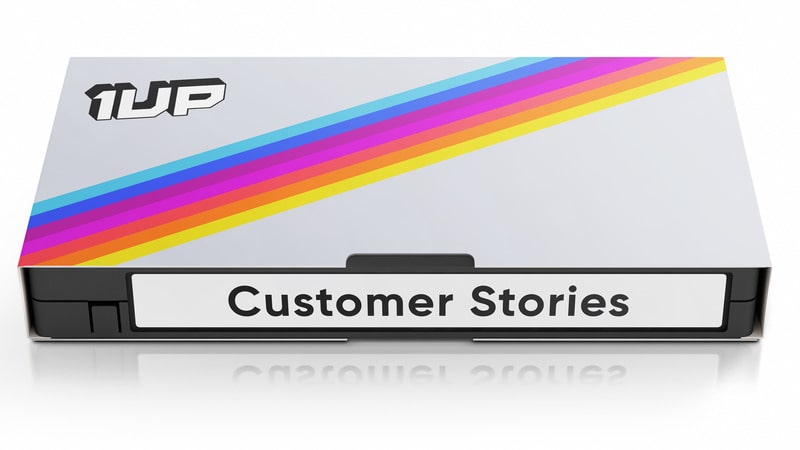

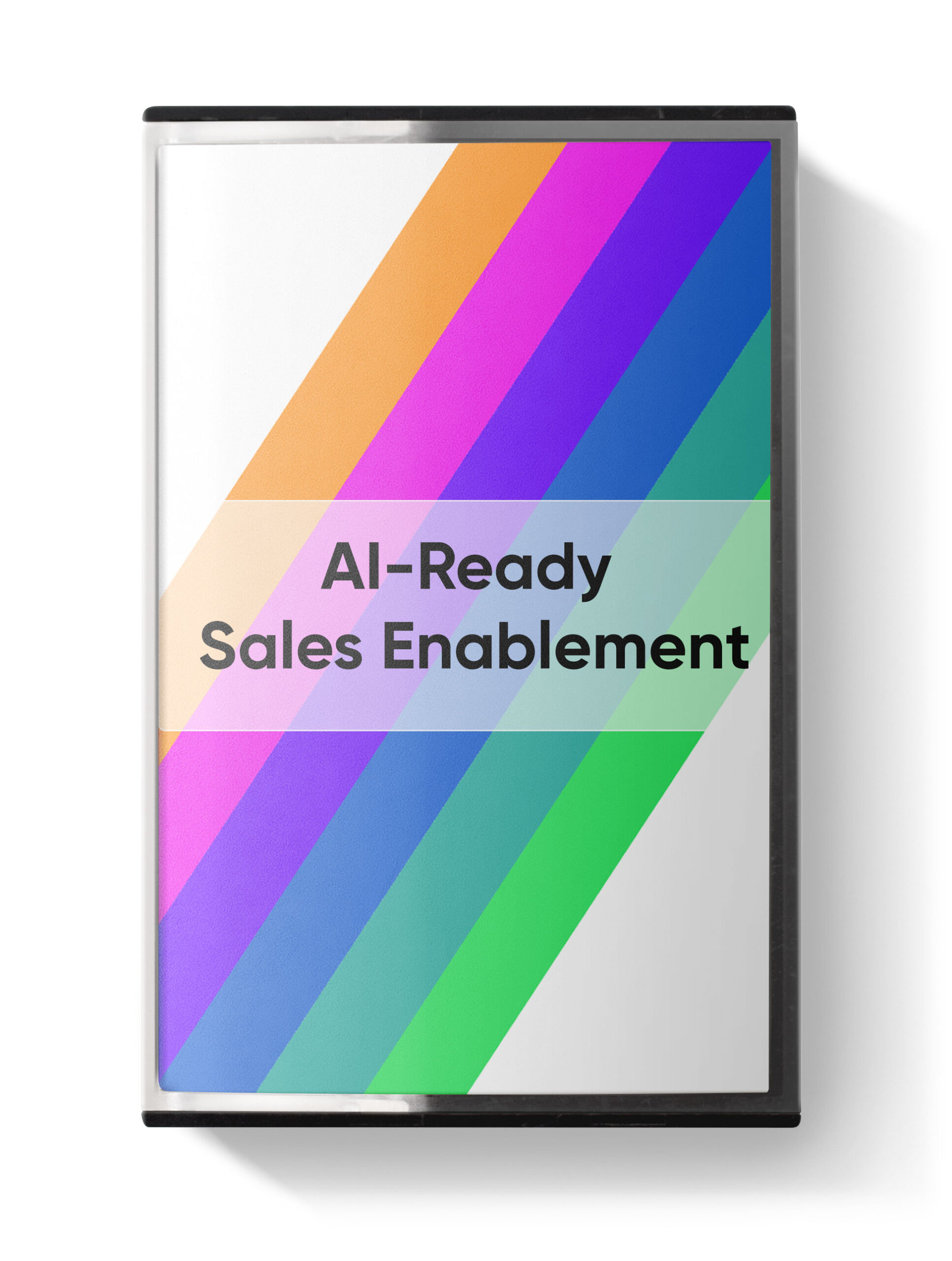
 Instagram
Instagram 



![The State of AI in Knowledge Management [2026]](https://1up.ai/wp-content/uploads/vhs_cassette_state_of_ai_in_knowledge_1.png)
